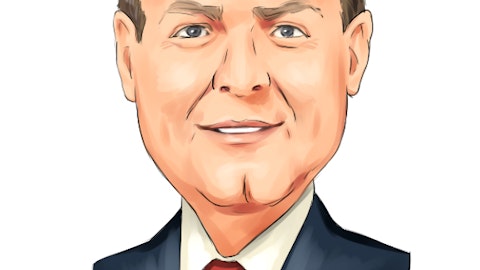Palm Valley Capital Fund published its 2020 Q1 investor letter on April 1st. The bearish mutual fund reported a 0.79% gain for the first quarter of 2020. As of the most recent prospectus, the Fund’s gross expense ratio is 2.02% and the net expense ratio is 1.25%. Palm Valley Capital Management has contractually agreed to waive its management fees and reimburse Fund operating expenses through at least April 30, 2021.
During the quarter, we purchased 21 new names for the Fund. These companies are: Advance Auto Parts (AAP), Alamos Gold (AGI), Benchmark Electronics (BHE), Carters (CRI), Cass Information Systems (CASS), Euronet Worlwide (EEFT), Dick’s Sporting Goods (DKS), EZCORP (EZPW), Gencor Industries (GENC), Healthcare Services Group (HCSG), Helmerich & Payne (HP), iShares Silver Trust (SLV), Kelly Services (KELYA), Osisko Gold Royalties (OR), Scholastic (SCHL), Skechers (SKX), SP Plus (SP), Sykes Enterprises (SYKE), Unifirst (UNF), United-Guardian (UG) and Weis Markets (WMK). This was an unusually high amount of activity that will not be matched in most quarters and was directly tied to market volatility.

Lucky-photographer/Shutterstock.com
Here is what they said in the letter:
“During February, when the incipient virus was mainly confined to China, U.S. investors maintained a sanguine outlook, pushing stocks to record levels. That optimism disintegrated as the coronavirus was imported to the US shores. Fear struck when the first cases of local transmission were reported in California. Initially widely dismissed as “no worse than the flu,” America gradually, and then suddenly, got serious about the coronavirus.”
While the coronavirus was the catalyst to send markets spiraling, the management of this Fund believes the Fed is the culprit for why the financial damage turned so bad, so quickly.
We disagree. We are on the cusp of the biggest quarterly collapse in GDP and the S&P 500 Index declined less than 35% from peak to trough. And the decline was brief. By the time investors started to “nibble” on stocks, the indices went back up. So, effectively the decline in the S&P 500 Index was more closer to 25% than 35%. You could see the effects of this in Palm Valley’s cash holdings. They have been waiting for a large decline in the market to deploy their cash. Before the crisis hit Palm Valley had more than 90% in cash. By the end of March this figure declined to 50%.
“One reason we didn’t reduce cash levels in the Fund even further during the market’s downswing was because most higher quality companies didn’t become cheap, in our opinion. You can’t start from nosebleed valuations, have an average bear market decline, and assume everything must be on sale,” Palm Valley said in the letter.
Again, we disagree. This isn’t the time to buy “higher quality” companies. This is the time to buy smaller companies that will survive the deep recession and are still trading for a 50% or more discount. You aren’t going to outperform the market by buying Amazon.com Inc. (NASDAQ:AMZN) today. It looks like Palm Valley is trying to follow this approach. Here is what they said about some of their new purchases:
“Advance Auto Parts (AAP) is a leading auto parts retailer that sells to professional and retail customers. Auto parts stores have been deemed essential businesses by most states. We bought shares of Advance Auto during the swoon in retail stocks at a low multiple of trailing earnings. We believe auto parts sales will not be as dramatically affected as many other retailers during this time.”
“Carters (CRI) is the largest branded marketer in North America of apparel for babies and children and owns the Carter’s, OshKosh, and Skip Hop brands. Although COVID-19 related store closures will temporarily impact Carter’s retail operations, we believe the firm will emerge from the shutdown with its market leadership intact. Moreover, we think sales of baby and kids’ clothes will better endure a period of economic difficulty.”
“Dick’s Sporting Goods (DKS) is a market leading retailer of sporting goods. Through its 850 stores, Dick’s provides consumers with an extensive selection of sporting equipment, apparel, and footwear. Although we understand the challenges Dick’s and other retailers are facing, we are encouraged by the company’s abundant liquidity ($69 million in cash and $1.36 billion credit facility availability) and underleveraged balance sheet (0.35x Debt to EBITDA). We expect Dick’s will survive the current retail recession and believe its stock is selling below our discounted cash flow valuation.”
We aren’t sure retail stocks are the best bets right now, maybe except AAP. We shared a healthcare stock pick from hedge fund manager Michael Castor who expects this stock double in the next few years.




